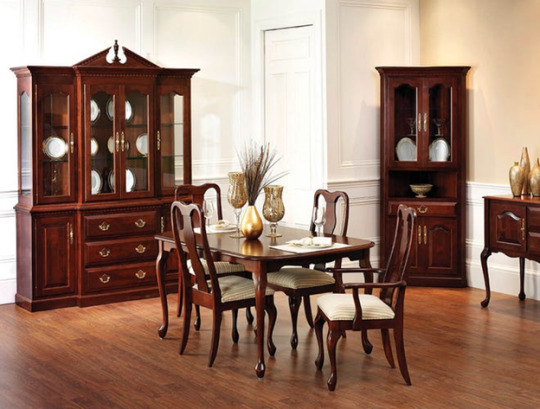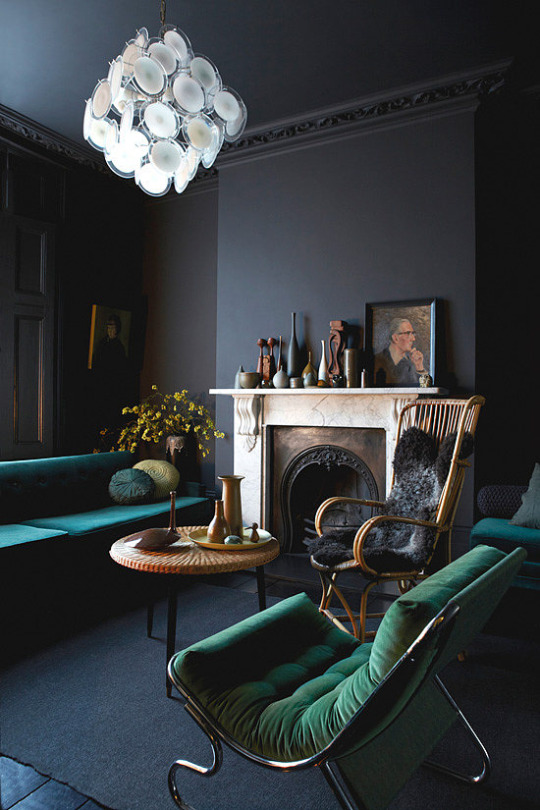#Avoid Ostentation
Text
The Laws Of Court Politics
Avoid Ostentation.
It is never prudent to prattle on about yourself or call too much attention to your actions. The more you talk about your deeds the more suspicion you cause. You also stir up enough envy among your peers to induce treachery and backstabbing. Be careful, ever so careful, in trumpeting your own achievements, and always talk less about yourself than about other people. Modesty is generally preferable.

Practice Nonchalance.
Never seem to be working too hard. Your talent must appear to flow naturally, with an ease that makes people take you for a genius rather than a workaholic. Even when something demands a lot of sweat, make it look effortless—people prefer to not see your blood and toil, which is another form of ostentation. It is better for them to marvel at how gracefully you have achieved your accomplishment than to wonder why it took so much work.
Be Frugal with Flattery.
It may seem that your superiors cannot get enough flattery, but too much of even a good thing loses its value. It also stirs up suspicion among your peers. Learn to flatter indirectly—by downplaying your own contribution, for example, to make your master look better.

Arrange to Be Noticed.
There is a paradox: You cannot display yourself too brazenly, yet you must also get yourself noticed. In the court of Louis XIV, whoever the king decided to look at rose instantly in the court hierarchy. You stand no chance of rising if the ruler does not notice you in the swamp of courtiers. This task requires much art. It is often initially a matter of being seen, in the literal sense. Pay attention to your physical appearance, then, and find a way to create a distinctive—a subtly distinctive—style and image.
Alter Your Style and Language According to the Person You Are Dealing With.
The pseudo-belief inequality—the idea that talking and acting the same way with everyone, regardless of their rank, makes you somehow a paragon of civilization—is a terrible mistake. Those below you will take it as condescension, which it is, and those above you will be offended, although they may not admit it. You must change your style and way of speaking to suit each person. This is not lying, it is acting, and acting is an art, not a gift from God. Learn the art. This is also true for the great variety of cultures found in the modern court: Never assume that your criteria of behaviour and judgment are universal. Not only is an inability to adapt to another culture the height of barbarism, but it also puts you at a disadvantage.
Never Be the Bearer of Bad News.
The king kills the messenger who brings bad news: This is a cliché but there is truth to it. You must struggle and if necessary lie and cheat to be sure that the lot of the bearer of bad news falls on a colleague, never on you. Bring only good news and your approach will gladden your master.
Never Affect Friendliness and Intimacy with Your Master.
He does not want a friend for a subordinate, he wants an assistant. Never approach him in an easy, friendly way, or act as if you are on the best of terms—that is his prerogative. If he chooses to deal with you on this level, assume a wary chumminess. Otherwise, err in the opposite direction, and clear the distance between you.
Never Criticize Those Above You Directly.
This may seem obvious, but sometimes some sort of criticism is necessary—to say nothing or to give no advice, would open you to another kind of risk. However, you must learn to coach your advice and criticism as indirectly and politely as possible. Think twice, or three times, before deciding you have made them sufficiently circuitous. Err on the side of subtlety and gentleness.

Be Frugal in Asking Those Above You for Favors.
Nothing irritates a master more than having to reject someone’s request. It stirs up guilt and resentment. Ask for favours as rarely as possible, and know when to stop. Rather than making yourself the supplicant, it is always better to earn your favours, so that the ruler bestows them willingly. Most important: Do not ask for favours on another person’s behalf, least of all a friend’s.
Never Joke About Appearances or Taste.
A lively wit and a humorous disposition are essential qualities for a good courtier, and there are times when vulgarity is appropriate and engaging. But avoid any kind of joke about appearance or taste, two highly sensitive areas, especially with those above you. Do not even try it when you are away from them. You will dig your own grave.
Do Not Be the Court Cynic.
Express admiration for the good work of others. If you constantly criticize your equals or subordinates some of that criticism will rub off on you, hovering over you like a gray cloud wherever you go. People will groan at each new cynical comment, and you will irritate them. By expressing modest admiration for other people’s achievements, you paradoxically call attention to your own. The ability to express wonder and amazement, and seem like you mean it, is a rare and dying talent, but one still greatly valued.
Be Self-observant.
The mirror is a miraculous invention; without it, you would commit great sins against beauty and decorum. You also need a mirror for your actions. This can sometimes come from other people telling you what they see in you, but that is not the most trustworthy method: You must be the mirror, training your mind to try to see yourself as others see you. Are you acting too obsequious? Are you trying too hard to please? Do you seem desperate for attention, giving the impression that you are on the decline? Be observant about yourself and you will avoid a mountain of blunders.
Master Your Emotions.
As an actor in a great play, you must learn to cry and laugh on command and when it is appropriate. You must be able both to disguise your anger and frustration and to fake your contentment and agreement. You must be the master of your own face. Call it lying if you like; but if you prefer to not play the game and to always be honest and upfront, do not complain when others call you obnoxious and arrogant.
Fit the Spirit of the Times.
A slight affectation of a past era can be charming, as long as you choose a period at least twenty years back; wearing the fashions of ten years ago is ludicrous unless you enjoy the role of court jester. Your spirit and way of thinking must keep up with the times, even if the times offend your sensibilities. Be too forward-thinking, however, and no one will understand you. It is never a good idea to stand out too much in this area; you are best off at least being able to mimic the spirit of the times.
Be a Source of Pleasure.
This is critical. It is an obvious law of human nature that we will flee what is unpleasant and distasteful, while charm and the promise of delight will draw us like moths to a flame. Make yourself the flame and you will rise to the top. Since life is otherwise so full of unpleasantness and pleasure so scarce, you will be as indispensable as food and drink. This may seem obvious, but what is obvious is often ignored or unappreciated. There are degrees to this: Not everyone can play the role of favourite, for not everyone is blessed with charm and wit. But we can all control our unpleasant qualities and obscure them when necessary.

“A man who knows the court is master of his gestures, of his eyes and of his face; he is profound, impenetrable; he dissimulates bad offices, smiles at his enemies, controls his irritation, disguises his passions, belies his heart, speaks and acts against his feelings."
Jean de La Bruyère was a French philosopher and moralist
Born: 16 August 1645, Paris, France
Died: 11 May 1696, Versailles, France
#french#france#history#Court Politics#Laws#Avoid Ostentation#Emotions.#Practice Nonchalance.#royal court#people#human condition#life#wise#philosopher#philosophy#friedrich nietzsche#moralist
9 notes
·
View notes
Text
Blackberry (Steve Rogersx fem!reader)
Summary: You shouldn't have had too much to drink at that party, honey. (+18)
Warnings: 18+ ONLY/ Minors DNI, Angust, Hurt comfort, Sex, Apologies, Crying, Creampie, Passionate sex, virgin!reader, size difference, smut, soft!dom!, HEA, good ending, somnophille, slight degradation, duvious consent, menstrual sex, pregnancy, arranged marriage, inexperienced reader, abortion commented, unprotected sex (don't do that wrap this thing), kidnapping, aftercare, curse words.
series masterlist
A/N: English is not my mother tongue. I apologize for any errors.
A/N: The following chapter has graphic descriptions of non-consensual sex. I ask that you carefully observe the warnings to avoid triggers.

The party at the Stark mansion was a success as always. The cream of society was made up of businesspeople and new candidates for a seat in the American Congress. Dresses and hats fluttered in the cool spring breeze. You devoured a bowl of sugared blackberries, leaning against the bar counter, while watching your parents talk with friends animatedly about some topic involving economics and money. For God! You were so bored not even one of your friends decided to join you in this den of ostentation and hypocrisy.
And nothing, no matter how exciting it was to be in a superhero's house, could appease the enormous boredom that consumed his insides. Not even alcohol could keep you company at this point, your father would die before allowing a drop of alcohol to wet his tongue, so you were left with sugary blackberries that proved to be a good aphrodisiac on a hot afternoon.
You swallowed the last blackberry and left the empty bowl on the counter. He walked to his mother and whispered ‘’I’m going for a walk’’ in her ear and left the room before his mother could retort. You easily dodged the hundreds of guests and headed to the farthest drinks tent where an efficient bartender was juggling. The tent was outside, near a clump of trees, away from the watchful eyes of his parents.
“A blackberry margarita, please.” You asked, leaning slightly over the ivory surface.
"Identity." He asked.
“I didn’t bring it, but I guarantee that I’m of legal age.” You smiled as convincingly as you could, but he didn't seem inclined to help you. You rolled your eyes. “I’ll give you 100 bucks for the drinks.”
The bartender looked at You in disbelief. You felt internally angry; The childish features still hadn't left his face like the cute cheeks and plump lips, and that always got him into trouble.
“Not happening, girl.”
"Please! This party is a big mess, if you know what I mean. I need to stuff my face or I’m going to go crazy.”
Again he looked at her in disbelief. He was probably one of those people who only saw parts published in gossip magazines about young heirs who got into trouble.
"It went badly."
You sighed. Your father didn't even let you bring your cell phone. It was not polite, in his opinion, for a rich girl to interrupt an important conversation because of a message.
“A straight whiskey, please.” The deep voice next to him. “And a blackberry margarita.”
Without having to present ID or leave a tip to guarantee efficient service, the man, the damn Captain America, got both orders at incredible speed. The only thing You could think about was how tall and handsome he was.
"Here." He handed her the drink. “I got the impression that you forgot your identity and are being massacred by the damn bureaucracy.”
You smiled; by the drink and the wording so changing coming from a man considered by many to be an American God.
“Thank you, Captain.” You said as you took a sip of your drink.
“Steve. Just Steve.” He said taking a generous sip of his own drink. “I hope he really is of age. I don’t want to get in trouble.”
"Right. Steve. Just Steve.” You repeated with a mischievous smile. “I promise I will show you my ID as soon as possible.”
“What’s your name, pretty girl?”
You found yourself smiling and blushing at such a flippant compliment coming from such a divine man. You told him your name.
“A beautiful and delicate name. It suits you." He took another generous sip of his Whiskey and you took advantage and drank some more of your drink. It was sweet and went down as light as water.
“How can I thank you for the drink?” You asked.
"Talk to me."
You drank more of your blackberry margarita.
"About what?"
"Anything. Just… entertain me at this boring party.”
“Anything…” You took another sip. “As long as we can help ourselves to one more of these.” You got ready for your now empty glass.
“I wouldn’t have it any other way.” Steve said, finishing the whiskey with a hint of a smile on his lips.
At some point, between conversations and glasses of margarita, Steve convinced you to show him every corner of the mansion. You accepted, looking excited about taking a tour with such a handsome man by your side. You and Steve left the tent, avoiding curious glances and boring conversations. He showed you the room where the Avengers met, the works of art that Tony insisted on buying, the training room and finally a long corridor with similar doors. He opened one of them and you entered a large room without windows, with a large sofa in the center, a minibar, a large TV that took up the entire wall and a strange device that you thought was a stereo.
It was large, clean and richly decorated. It felt like a sanctuary for leisure time. Steve pointed to the sofa and you sat down, he went to the minibar and returned with a bottle of reddish liquid. He sat down next to her.
“Do you want to drink more”? He reached out his hand, wrapping his long fingers around the bottleneck. He extended this to You as if it were not a trap that You were about to willingly fall into. “It’s a liqueur made with blackberries. I got it from a senator at a party at the White House. I noticed how much You like the fruit and I would like You to try it.”
You had already had too much to drink. There were glasses and more glasses of margaritas, and you already felt your body a little soft, but you couldn't refuse the proposal of a man as beautiful as that. The man who sacrificed a lot for this nation. It's just a drink, You thought. Getting drunk next to Captain America, who is a hero, is a much better idea than getting drunk alone in a mansion. And you loved blackberries.
"Yes please." You mumbled, and Steve looked so proud of your response. He poured you a generous dose of drink. You drank. It was strong and very concentrated, very different from your sweet and light margherita. You didn't care you just drank more while Steve looked at You with a big smile. Beautiful. It was a beautiful smile.
One drink turned into two, then three and four.
“You’re blushing.” He smiled, he said drinking some of the liquor. “Your first kiss wasn’t that bad.”
You didn't notice. But You started sharing very personal things with Steve; You told him how your first kiss, as a child, was a disaster with a classmate you liked. You said how it was drooling and clumsy.
"It was horrible". You made a cart.” I did it because my friends wanted it. I should have waited longer.”
You don't feel it, but your knees spread of their own accord as a warm hand, not yours, lifts your dress a little and exposes the inside of your thigh and begins to massage in gentle circles as you finish another glass, laughing hard. , the heat growing whenever he got closer.
“A girl as beautiful as you should have someone.” He says in a reprimanding tone. He was close, very close. You drank more.
“No” You laugh, louder than usual, You feel so good, so light. But you feel a wave of disappointment wash over your body when you remember that you had no one. She couldn't even remember the last time she was touched or praised by the opposite sex.
“With such a beautiful face like that, it’s hard to believe.” He smiled. “Such a beautiful body and...”
He pauses.
“And…” You encourage him to continue.
“With breasts as beautiful as yours, I’m sure everyone…” He stops, looking embarrassed, his hand on your thigh about a little more. "Forgive me. This is inappropriate.
"No." You say quickly, urgently, although more slurred than usual.” I don't mind. You can praise them.”
"No?" He asks, his voice perfectly steady, with fake surprise behind it. Had you and he already had so much to drink because he didn't seem any different? “Would you mind showing them? I would love to see."
You shake your head and mumble no. With one hand, the other held the glass of drink, You released the bows on your dress that held your breasts, You didn't wear a bra, you didn't need them to make your breasts look beautiful, something you were secretly proud of. Her breasts bounce out towards him.
Steve reaches out his hand and gives it a nice squeeze. You let out a small moan at the intimate touch.
“I want to suck your six.” He blurts out.
His smile disappears, mostly in shock at such a bold revelation. But a part, a big part, of you feels flattered that Captain America wants to play with your breasts and all you wanted at that moment was for him to touch you.
"All good." You mumble in a slurred, broken voice.
Steve pushes your body until his head is between your breasts. You feel him take a deep breath, smelling you, his right hand grabs one of your breasts. He tilts his head and wraps his lips around your closest nipple.
The sensation is strange, it tickles, cold, but it warms up quickly. You had never felt someone do it like this before, it was much more like a brief lick or a clumsy and seductive suck like many boys did. But with Steve it was different. He was grasping as if trying to extract fluid that will never come out. He moans lewdly. You drop the glass and place your hand under his blonde locks, pressing his head against your breasts.
“Steve.” You let out a moan as he takes a long nip before releasing your breasts in a wet pop.
“Where is your glass?” He asks.
You don't respond, because you're too oblivious to pay attention to his words. His body was hot, his vision blurred and his nipples hard and sensitive. You were oblivious when you felt Steve put a full glass in your hands, he mumbled a drink and you obeyed, wanting to leave him satisfied.
You drank more. Maybe four or five or six more glasses. You do not remember. The last one ended up kind of spilled because you couldn't hold it while Steve helped you take off his dress. You feel his head being placed on a soft pillow or perhaps a cushion, You couldn't tell; his vision was blurred and his senses were weak. Warm hands slide down your legs to your panties and gently remove them. Your blurred vision is bathed in the sight of Steve shirtless on top of you. Beautiful. He was so beautiful.
You're moaning and shaking with nervousness, or at least you would be if his grip wasn't holding you in place. Her pussy burned with heat and desire, it was like rough sandpaper that moved in and out, swinging a seesaw from hell.
“It hurts.” You mutter. You were a mess and you know it, the words come out slow and slurred. Humiliation rises deeper than pleasure can reach, and disgust crawls over your skin with a sheen of sweat. He had touched her before. Stimulating your clit until you came on his long fingers, but it wasn't enough, it never would be. He was big and thick, with powerful hips that caused her great pain with each thrust.
You weren’t expecting it when he tilted his hips just to rub the fat head of his cock against your aching pussy. You moan at the small shock waves caused by the brief contact with your clit, but he smothers your moans with a wet, hot kiss, taking away your oxygen. He shoved his cock back inside her ripped hole.
He moaned against You, his mouth open panting, as if he was feeling something that You didn't. The intrusion not only stretches, but burns and hurts. Dry fiction mixes with rough movement. The tears flow, You feel the wet trail they leave on your cheeks. The disorientation left You dizzy and contained, a prisoner of your own body, but that didn't stop Him from exerting his strength against You. He was heavy. Upon noticing your whimpering, the hand that was on your hips goes up to cover your mouth, spreading tears and saliva everywhere.
“It’s okay, my love.” He said between moans. “You are so beautiful and as sweet as berries.”
The blackberries. The damn blackberries were the ones who brought her here. Steve gives another powerful thrust, preventing any further thought. You scream into his hand. He begins to fuck with desire, with strong thrusts, riding his own release. You moan, writhe, scream when a sensation begins to blossom at the tip of your toes that rises to your abdomen causing your muscles to contract slightly and then relax. Steve doesn't stay far behind, he pulls out of your pussy and with one last thrust spills all of his semen inside of you.
You are sleeping too deeply to understand, but not too deeply not to hear. You hear some loud footsteps, a door closes, before you feel someone approaching.
"Mommy." You speak as you sit up, try to open your eyes, your mind is still spinning. A great light hits your eyes and you close them quickly. Little by little you open your eyes slowly until you get used to it.
You wish your mother had killed the man who enchanted you with smiles and drinks so that you would give yourself to him, you may fear that strange conversation and the lectures, but you longed for your mother's safety and her lap. But it wasn't his mother who was sitting next to him. It was him.
“It’s okay, sweetheart.” He says as he brushes the strands of hair out of your face. “Your parents are a little upset now, but they will get over it little by little, you'll see. They will be happy for their little daughter who has won over the national hero and is about to walk down the aisle.”
"What are you talking about?" You say roughly, trying to get up, but the quick action made your body weaken. Steve picks you up and sits back down on the couch.
“I will take care and spoil you a lot, my love. You will see. I will fill you with gifts and love. We're gonna have a lot of fun." Steve says with a scary look on his face.
"You are crazy." You say in tears. “My parents will...”
"Do not worry about a thing." He pulls away and stands up, walking over to the minibar counter where a red bowl awaits him. He pities her and returns to You. “I'm already taking care of everything. All You need to do now is eat.”
Fear flooded your body You had already trusted that man and look what happened, but You had already seen too many documentaries and police series to know how much this type of person hated being contradicted. Maybe being his sweet, obedient girl would provide you with some benefit. With your body shaking, you stretched to see the contents of that bowl. A sound of disgust escaped his mouth when he realized they were blackberries.
#steve rogers x reader#steve rogers#dark steve x reader#dark steve rogers#capitain america#steve rodgers x reader#steve rogers x y/n#steve rogers x female reader#steve rogers fanfiction#steve rogers x you#captain america#dark!steve rogers#dark!steve x you#dark!steve x reader
176 notes
·
View notes
Note
GAH!!! I’ve had this question on my mind for so long, but do the boys have any particular tastes when it comes to interior design? Minimal, eclectic, etc… whatever boys you want to choose! Thank you!!!
This was interesting, I had to go on a bit of adventure through interior décor styles because I’m not too familiar with all the terms, but I definitely had fun~
Forgive any misuse of interior design words below, I am not an expert! XD
(Featuring many images stolen from Google)
Sans (Undertale): Sort of a revival post-modernist, not quite as loud as the original post-modern look in terms of colors, but still a mix-and-match of shapes and materials, spacious areas, not afraid of décor or accenting a space with unique pieces that don’t perfectly coordinate with the others. Comfort and space over rigid adherence to an aesthetic.

Papyrus (Undertale): Memphis style designs really capture his imagination, lots of shapes and bold, bright colors, circles and checkerboards and zig-zags. It’s fun, he likes fun things! Abstractly-shaped furniture and weird objets d’art—could use some more stuff with cool flame-patterns, or maybe some spikes here and there, but he can experiment to get the right balance in there!

Sky (Underswap Sans): Into modern styles, mostly, he does like the minimalist look but absolutely goes in for strategic splashes of color to brighten things up. Sleek shapes and clean lines are great, but absolutely must be offset by some rich lively colors for an open, welcome feel, can’t let it feel too sterile.

Paps (Underswap Papyrus): Favors sort of a regence look, tends toward curving lines and intricate elegance in the little details. Chair arms that swirl, fleurs in the carving of a cabinet, decorative patterns and motifs to tie everything together as a cohesive whole. He finds the charming elegance comfortable and easy to settle into.

Jasper (Underfell Sans): Definitely more of an artisan/arts and crafts style kind of guy, cares less about the Look of things than he does the craftsmanship of it—he wants things to be well-made and able to stand up to consistent use, so most of what he favors are sturdy pieces and designs without ostentation or elaborate details. It may not be the prettiest, but it is homey and comfortable and ready to be actually lived in.

Pyre (Underfell Papyrus): Empire style, he is all about the ostentation and elaborate details, silk and velvet, ebony and gold, it has to be bold and artful and dramatic (just like he is). If something’s a little too plain and simple, he’ll pass on it or find a way to dress it up prettier.

Mal (Swapfell Sans): Contemporary design is more his thing, sleek lines and sharp angles, with a strong aesthetic preference for more industrial materials (glass, metal, marble, etc). Tends to avoid most color, sticking with black and white, and just a few decorative objects here and there to draw the eye. He likes the clean look over a more comfortable, lived-in one.

Rus (Swapfell Papyrus): Big fan of art nouveau, swirling lines and curving forms. Stained glass lamps, art, and windows are big hit with him, as well as wrought iron railings or table frames and the like. He likes colors and things that feel like they flow, mostly, and any intricate detail-work that catches the eye.

Slate (Horrortale Sans): Cottage style is more his speed, a little rustic and a lot cozy, with a special emphasis on plush furniture. He’s all about the comfort and the homey feel, nothing pristine that an accident or a bit of wear-and-tear will ruin quickly.

Papy (Horrortale Papyrus): More of an English country sort of guy, big on patterns and florals, but also into a bit of delicacy and charm—some more ornate accent chairs here, decorative curtains there, unique antiques and plants everywhere. Definitely cozy and comfortable but done in a very thoughtful and deliberate way.

Ash (Undergloom Sans): Clutterbitch—wait no, I mean maximalist. He likes having a lot of stuff and putting it on display, and bright colors (especially turquoise!) make him happy to look at, so he’s drawn to that kind of thing when customizing a space. Lots of knickknacks and prints related to his hobbies, maybe a novelty end table or two, shaped like a record or a cloud or something. A bit chaotic but he probably knows where everything in it is, so ¯\_(ツ)_/¯

Yrus (Undergloom Papyrus): He goes for a bit of a modern farmhouse look, soft neutrals with warmer rustic touches. Likely to spruce it up a little further with some bright yellows and greens, but mostly in the accents—flowers, artwork, et cetera. Also likely to decorate with lots of candles and mason jars and anything he comes back with from the home goods store, because he is very passionate about the home goods store.

Brick (Horrorfell Sans): Tends toward Tuscan style, warm tones, wood and tile and wrought iron, sturdy and well-crafted furniture. Not opposed to some intricate designs here and there, but not that intricate, just enough to look a little nice. Maybe a bit nicer than the absolute basics, but he’s not trying to impress anybody, he just wants cozy and comfortable, and maybe he’s earned the right to a tiny bit of fance here and there, y’know?

King (Horrorfell Papyrus): Something of a traditionalist, with a strong appreciation for clean, elegant, and cohesive styles. The classics never go out of fashion—dark wood, damask patterns, ornate detailing, maybe some fine red drapery and a chandelier or two, but nothing too ostentatious. Less is more, but no need to go full minimalist to show your class, after all.

Merc (Horrorswap Sans): Definitely about the shabby chic, clean and simplistic styles but with a touch of wear or softness to keep it inviting. Not a sterile space that can’t be lived in, but still a bit neat and thoughtfully arranged!

Ell (Horrorswap Papyrus): More a fan of the urban look, exposed brick and beams but some softening elements incorporated too, like abstractly shaped furniture and décor, and lots of lighting. More minimalist than cluttered and probably not a huge fan of rugs, but he definitely wants a good balance between hard and rough, and soft and wavy aesthetics.

Pitch (Horrorswapfell Sans): He can’t actually see it, but tends to favor Mediterranean styles. He likes a lot of sunlight, open floor plans, and wide doorways, and he’s a little less picky about his furniture but anything with ornate designs and detailing that he can physically feel to appreciate is a bonus. Function over form, though, comfort and utility is always foremost in his consideration.

Nemo (Horrorswapfell Papyrus): Fond of mission style, slatted wooden furniture, simple and clean designs and only a couple accent colors that work well with them—autumnals are a favorite. Some nature-inspired touches like plants, artwork, and other accents to bring a little of the outdoors in, but not so much as to be cluttered.

Sunny (Gastertale Sans): Mid-century modern, for the most part, uniquely shaped items to stand as conversation pieces, but still primarily designed for utility. A little off-beat and retro, but still a homey and comfortable place to chill in.

Aster (Gastertale Papyrus): Big into art deco, metal and glass, geometric patterns and angular designs with bold, rich colors. He finds it to have a very fun and classy feel and likes things that make a statement—so he’s likely to incorporate a lot of centerpieces and décor wherever he can to draw the eye.

Spectr (Transcendtale Sans): Full-on industrial, brick and metal and hardwood, ideally with open and lofted spaces. It’s kind of what he’s gotten used to and gained an appreciation for along the way, so it may not be the most innately homey-feeling place, but he’s comfortable in it. Likely to accent the space with art—wall or sculpture—rather than rugs or blankets.

PapAIrus (Transcendtale Papyrus): He’s a minimalist. He doesn’t actually have a physical body most of the time, so his taste in decorating a space tends to prioritize aesthetic over what it would be like to actually live in it. Still, he is fond of aesthetics so he’s sure to pick out at least a few interesting and attractive centerpieces—light fixtures, table décor, an accent pillow, something—to make it a little prettier.

Xanth (Ascendswap Sans): Sort of an eclectic/boho thing going on, lots of color and design and pretty much anything fun that catches his eye-socket. He’s very into crystals and wall hangings and art (or plants!) that can be strung up to dangle from the ceiling, so any space he’s involved in decorating is bound to look a little messy, but it’s comfortable and fun so it works out in the end!

Piper (Ascendswap Papyrus): Give him that Hollywood glam, glossy high-shine surfaces—glass, gold, mirrors—mixed with soft velvets and satins. Mostly black and white but with a prominent accent color or two to really make the eleganza pop, he’s decorating to impress and show off his taste in design.

Carmine (Underfell Fruition Sans): Ends up falling into a bit of a steampunk style in terms of décor, lots of metal and lighting, plenty of stuffed shelves, and clockwork junk and tools lying around. He certainly has nothing against brass and leather either so y’know, if that’s what you wanna call it, there it is.

Tank (Underfell Fruition Papyrus): Country house design is more his speed, very fond of gingham and natural light and an overall homey feel. It’s not what he’s used to, per se, but that’s kind of���better. He likes light and open spaces, big tables for activities and soft furniture for sitting, but nothing so clean and new that it doesn’t feel like it’s meant to be used.

Vi (Swapfell Fruition Sans): International/modernist is mostly what he goes for, emphasis on steel and glass and concrete, and sharp minimalist lines. If he’s going to splurge on any patterns or color, it’ll only be in a few select pieces, nothing too outrageous.

Hunter (Swapfell Fruition Papyrus): He prefers a bit of a rustic look to things, with a high preference for natural materials, like stone and wood. Lofts are cool, as are sturdy shelving and exposed beams, but he’s especially into a good view, so if there’s high windows or just a lot of them, he’ll be happy.

Kohl (Descendtale Sans): Tends toward a dark romance style, deep rich (but of course, dark) colors, soft lighting, and graceful, sometimes ornate lines. Not one to overclutter with décor and accents, mostly simplistic, but a few items here and there—quilts and dried flowers and overstuffed pillows.

Bram (Descendtale Papyrus): Whimsigoth, a fondness for the ornate and intricate and elegant, but a tendency towards eclectic amounts of décor—wall hangings, candles, bones, and books all artfully arranged. Very into patterned furniture with texture, from the pattern being either pressed or stitched into the fabric. A little messy at first glance but he’s actually very deliberate with his arrangements for the most balanced look.

#anonymous#headcanons#undertale#underswap#underfell#swapfell/fellswap#horrortale#undergloom#horrorfell#horrorswap#horrorswapfell#gastertale#transcendtale#ascendswap#underfell fruition#swapfell fruition#descendtale
63 notes
·
View notes
Text
Epictetus, Golden Sayings 175
Never call yourself a Philosopher, nor talk much among the unlearned about Principles, but do that which follows from them.
Thus at a banquet, do not discuss how people ought to eat; but eat as you ought.
Remember that Socrates thus entirely avoided ostentation. Men would come to him desiring to be recommended to philosophers, and he would conduct them thither himself—so well did he bear being overlooked.
Accordingly, if any talk concerning principles should arise among the unlearned, be you for the most part silent. For you run great risk of spewing up what you have ill digested.
And when a man tells you that you know nothing, and you are not nettled at it, then you may be sure that you have begun the work.
IMAGE: Pier Francesco Mola, The Teachings of Socrates (c. 1660)

12 notes
·
View notes
Text
[ He couldn't avoid Hell entirely while he was here, he supposed. He didn't know the lay of the land, so to speak, but he figured that Lust would be the best option for showing up before he went to find out who was in charge of things. If it was Mica or some other Fallen who had clawed their way to the top in this reality. Especially since, with the spell, he knew Miles had been in Hell recently.
He'd opt for a middle-ground ostentation-- horns curving around a dark disc of a halo remnant that drew light into it like a black hole rimmed by a corona of light. Wings and gold tracery on display, a long wide-sleeved peacock pattern silk coat spilling back down behind him with several feet of train, richly tailored slim trousers ending in hoofed gazelle feet and chest bare above a wide woven belt tied around his waist where the trousers ended.
He'd manifest in whatever seemed to be the main space here. ]
If your Prince is not currently in attendance, please send them a message to receive me into their Court.
[ He did not raise his voice, but it did reverberate, a practiced lover's whisper. ]
@ashenheartx
41 notes
·
View notes
Text
SAINT OF THE DAY (March 22)

March 22 is the liturgical memorial of Saint Lea of Rome, a fourth-century widow who left her wealth behind, entered consecrated life, and attained great holiness through asceticism and prayer.
Though not well-known as a figure of devotion in modern times, she was acknowledged as a saint on the testimony of her contemporary Saint Jerome, who wrote a brief description of Lea's life after she had died.
Jerome, a scholarly monk best known for his Latin translation of the Bible (the Vulgate), is the Church's only source of information on St. Lea, whose biographical details are unknown.
St. Jerome eulogized her in a letter written during the year 384 to his student and spiritual directee Marcella, another Roman consecrated woman who had left her aristocratic life behind after being widowed.
It is clear from his letter that Lea was a mutual friend to both Jerome and Marcella.
Jerome states that his account is written to “hail with joy the release of a soul, which has trampled Satan under foot, and won for itself, at last, a crown of tranquility.”
Jerome also contrasts the life of “our most saintly friend” with that of the late pagan public official, Praetextatus, held up by Jerome as a cautionary example.
“Who,” Jerome begins, “can sufficiently eulogize our dear Lea's mode of living? So complete was her conversion to the Lord that, becoming the head of a monastery, she showed herself a true mother to the virgins in it, wore coarse sackcloth instead of soft raiment, passed sleepless nights in prayer, and instructed her companions even more by example than by precept.”
Jerome describes how Lea, in her great humility, “was accounted the servant of all … She was careless of her dress, neglected her hair, and ate only the coarsest food. Still, in all that she did, she avoided ostentation that she might not have her reward in this world.”
Jerome's letter goes on to compare her fate to that of Praetextus – who died in the same year as Lea, after spending his life promoting a return to Rome's ancient polytheistic pagan religion.
The monk retells Jesus' parable of Lazarus and Dives, with Lea in the place of the poor and suffering man.
Lea, Jerome says, is “welcomed into the choirs of the angels; she is comforted in Abraham's bosom.
And, as once the beggar Lazarus saw the rich man, for all his purple, lying in torment, so does Lea see the consul, not now in his triumphal robe but clothed in mourning, and asking for a drop of water from her little finger.”
Thus Lea, “who seemed poor and of little worth, and whose life was accounted madness,” triumphs in salvation.
But the punishment of infidelity falls on the consul-elect — who had led a triumphant procession just before his death and had been widely mourned afterward.
Jerome ends his letter by urging Marcella to remember the lesson of St. Lea's life:
“We must not allow … money to weigh us down, or lean upon the staff of worldly power. We must not seek to possess both Christ and the world.
No; things eternal must take the place of things transitory; and since, physically speaking, we daily anticipate death, if we wish for immortality we must realize that we are but mortal.”
6 notes
·
View notes
Text

Morals and Dogma
11th Degree
SUBLIME ELECT OF THE TWELVE OR PRINCE AMETH
Elu of the Twelve
Part VII
To pity the misfortunes of others; to be humble, but without meanness; to be proud, but without arrogance; to abjure every sentiment of hatred and revenge; to show himself magnanimous and liberal, without ostentation and without profusion; to be the enemy of vice; to pay homage to wisdom and virtue; to respect innocence; to be constant and patient in adversity, and modest in prosperity; to avoid every irregularity that stains the soul and distempers the body–it is by following these precepts that a Mason will become a good citizen, a faithful husband, a tender father, an obedient son, and a true brother; will honor friendship, and fulfill with ardor the duties which virtue and the social relations impose upon him.
#freemasonry#freemasons#Albert Pike#masonic lodge#illustration#masons#masonic temple#Masonic Education#symbolism#esoteric#art#morals and dogma#occult#hermetic
13 notes
·
View notes
Text
Halfling
The comforts of home are the goals of most halflings lives: a place to settle in peace and quiet, far from marauding monsters and clashing armies: a blazing fire and a generous meal; fine drink and fine conversation. Though some halflings live out their days in remote agricultural communities others form nomadic bands that travel constantly lured by the open road and the wide horizon to discover the wonders of new lands and peoples. But even these wanderers love peace food hearth and home though home might be a wagon jostling along a dirt road or a raft floating downriver. The diminutive halflings survive in a world full of larger creatures by avoiding notice or barring that avoiding offense. Standing about 3 feet tall they appear relatively harmless and so have managed to survive for centuries in the shadow of empires and on the edges of wars and political strife. They are inclined to be stout, weighing between 40 and 45 pounds. Halflings skin ranges from tan to pale with a ruddy cast and their hair is usually brown or sandy brown and wavy. They have brown or hazel eyes. Halfling men often sport long sideburns but beards are rare among them and mustaches even more so. They like to wear simple comfortable and practical clothes favoring bright colors. Halfing practicality extends beyond their clothing. They're concerned with basic needs and simple pleasures and have little use for ostentation. Even the wealthiest of halflings keep their treasures locked in a cellar rather than on display for all to see. They have a knack for finding the most straightfoward solution to a problem and have little patience for dithering. Halflings are affable and cheerful people. They cherish the bonds of family and friendship as well as the comforts of hearth and home harboring few dreams of gold or glory. Even adventurers among them usually venture into the world for reasons of community friendship wanderlust or curiosity. They love discovering new things even simple things such as an exotic food or an unfamiliar style of clothing. Halflings are easily moved to pity and hate to see any living thing suffer. They are generous happily sharing what they have even in lean times. Halflings are adept at fitting into a community of humans dwarves or elves making themselves valuable and welcome. The combination of their inherent stealth and their unassuming nature helps halflings to avoid unwanted attention. Halflings work readily with others and they are loyal to their friends whether or otherwise. They can display remarkable ferocity when their friends families or communities are threatened. Most halflings live in small peaceful communities with large farms and well kept groves. They rarely build kingdoms of their own or even hold much land beyond their quiet shires. They typically don't recognize any sort of halfling nobility or royalty instead looking to family elders to guide them. Families preserve their traditional ways despite the rise and fall of empires. Many halflings live among other races where the halflings hard work and loyal outlook offer them abundant rewards and creature comforts. Some halfling communities travel as a way of life driving wagons or guiding boats from place to place and maintaining no permanant home.
Traits
A halfling reaches adulthood at 20 and genrally lives into the middle of his or her second century Most halflings are lawful good. As a rule they are good hearted and kind hate to see others in pain and have no tolerance for oppression. They are very orderly and traditional leaning heavily on the support of their community and the comfort of their old ways. Halflings average 3 feet tall and weigh an average of 40 pounds your size is small and your walking speed is 25 feet.
Brave: You have advantage on saving throws against being frightened.
Lucky: When you roll a 1 for an attack roll ability check or saving throw you can reroll the die and must use the new roll.
Halfling Nimbleness: You can move through the space of any creature that is of a size larger than yours.
Source: Players Handbook
Languages: You can speak read and write Common and Halfling. The Halfling language isn't secret but halfling are loath to share it with others. They write very little so they don't have a rich body of literature. Their oral tadition however is very strong. Almost all halflings speak common to converse with the people in whose lands they dwell or through which they are travelling.
2 notes
·
View notes
Text
plotted starter / @thepalelfe
a lingering dread has been looming over gale since he and his companions had encountered raphael at last light inn — seeing a prowling devil in that sole beacon of hope in a land accursed by darkness … it does [ little to soothe ] the wizard's frayed nerves, to say the least. more worrying - still was the little exchange that had occurred between raphael and astarion, HIS FANGED COMPANION sounding near - desperate to strike a deal with their … duplicitous acquaintance over the scars marring his back. gale scoffs at the thought, stealing hurried glances in the direction of the aforementioned vampire spawn from his spot in camp.
surely astarion knew nothing good would come out of any arrangements made with raphael — he'd dealt with dastardly sorts for some two hundred years, after all, if his brief admissions of cazador's torments were anything to go by. surely he knew that men like that … men like that [ would never stand ] to see you win. with this thought in mind, he strides over toward the rogue, feeling increasingly unsure of himself with every step. this is a terrible idea, he's sure, and astarion will likely take any of the wizard's COUNSEL AS CONDESCENSION rather than what it really, truly is, beneath all of gale's ostentation — concern, borne out of the genuine fondness he's begun to feel for the vampire spawn over the course of their travels.
he approaches astarion's tent hesitantly, shifting from foot - to - foot as he does so. 'astarion, my friend! i was hoping that you and i might, ehm, speak for a moment,' he announces, voice booming with his usual false - confidence . maybe it isn't too late to convince astarion to back out — to avoid dealing with raphael entirely, if possible. 'unless you're busy currently? i don't mean to intrude, of course,' he continues to ramble, as he is wont to do.
3 notes
·
View notes
Text
“Why is there a rule in the Cloud Recesses against how many ornaments you can have on your belt?”
“To avoid ostentation. You know what.”
“Okay. Okay. So, then, follow-up question: what the hell do you call THIS, then?”

28 notes
·
View notes
Text
Shaykh ibn Baaz (رحمه الله تعالى) said:
"...One of the signs of thanking Allah (عز وجل) for His blessings is using these blessings in what pleases Him and avoiding what displeases Him.
One of the signs of thankfulness is acknowledging these bounties and attributing them to Allah (عز وجل) alone
away from ostentation or pride especially before those who are deprived of these graces..."
[Majmoo ’al-Fataawa Ibn Baaz, Vol.: 9; pg. 155]
13 notes
·
View notes
Text
https://www.libertariantaoist.com/?p=8902
DAILY SELECTIONS FROM LAO-TZU’S TAO TE CHING — JULY 2, 2023
“Those who tiptoe don’t stand
those who stride don’t walk
those who consider themselves don’t appear
those who display themselves don’t shine
those who flatter themselves achieve nothing
those who parade themselves don’t lead
travelers have a saying
too much food and a tiring pace
some things are simply bad
those who possess the Way thus shun them”
-Lao-tzu-
(Taoteching, verse 24, translation by Red Pine)
TE CH’ING says, “People raise themselves up on their tiptoes to see over the heads of others, but they cannot stand like this for long. People take longer strides to stay in front of others, but they cannot walk like this very far. Neither of these is natural.”
WU CH’ENG says, “To tiptoe is to lift the heels in order to increase one’s height. To stride is to extend the feet in order to increase one’s pace. A person can do this for a while but not for long. Likewise, those who consider themselves don’t appear for long. Those who display themselves don’t shine for long. Those who flatter themselves don’t succeed for long. And those who parade themselves don’t lead for long.”
SU CH’E says, “Anyone can stand or walk. But if those who are not content with standing tiptoe to extend their height or those who are not content with walking stride to increase their speed, their stance and their pace are sure to suffer. It’s the same with those who consider themselves, or display themselves, or flatter themselves, or parade themselves. It’s like eating or drinking. As soon as you’re full, stop. Overeating will make you ill. Or it’s like manual work. As soon as you’re done, quit. Overwork will only exhaust you.”
SUNG CH’ANG-HSING says, “Selfless and free of desire is the mind of the sage. Conniving and clever is the mind of the common person. Observing themselves, displaying themselves, flattering themselves, and parading themselves, they hasten their end, like someone who eats too much.”
LI HSI-CHAI says, “Those who cultivate the Tao yet still think about themselves are like people who overeat or overwork. Food should satisfy the hunger. Work should suit the task. Those who keep to the Way do only what is natural.”
LU HUI-CH’ING says, “Why should Taoists avoid things? Doesn’t the Tao dwell in what others avoid? [see verse 8]. Taoists don’t avoid what others hate, namely humility and weakness. They only avoid what others fight over, namely flattery and ostentation. Hence, they avoid some things and not others. But they never fight.”
CHANG TAO-LING says, “Who follows the Way lives long. Who loses the Way dies early. This is the unbiased law of Heaven. It doesn’t depend on offerings or prayers.”
TS’AO TAO-CH’UNG says, “Those who straddle two sides are unsure of the Way.” [In line two, k’ua (stride) can also mean “straddle”].
2 notes
·
View notes
Photo

In today’s New York Times, I published a brief review of the work of Laszlo Barabasi and his collaborators at BarabasiLAB, showing now at Postmasters pop-up space in New York. Here’s what I wrote:
Albert-Laszlo Barabasi, a scientist turned artist, promotes a movement he calls Dataism, documenting “invisible but objective societal processes, connections, associations, affiliations, correlations, causes, and consequences, aspects of reality that are simply not accessible to retinal art.”
To that end, in this show called “BarabasiLab: Big Data (Networking the Artworld),” one wall at Postmasters features what looks like a suite of Bauhaus abstractions, but whose nesting rectangles actually represent philanthropic spending by foundations in the United States, from 2010 to 2019. (Art museums reap 0.5 percent of that spending, so the rectangle that stands for them takes up 0.5 percent of the total surface area of the suite’s abstractions.)
A single canvas on another wall, bearing a squiggly abstraction in green, yellow, blue and red, might almost be a Kandinsky-inspired response to music; in fact it captures the connections among the few big artists, dealers and museums that dominate the art world.
But here’s what’s weird about Barabasi’s information-heavy art: To squeeze the information out of his work — mostly paintings and prints, but this show includes one video and a sculpture — you can’t just look; you need to read a web page with the back story. That makes me think Barabasi’s work is more about capturing the vital feel of data in our lives than giving us specific facts.
Or maybe it’s about an ancient function of art we’ve come to neglect: To simply point at important things in the world — a mammoth to kill; a god to worship — without regard to beauty or style or anything “retinal.” All the work now at Postmasters could look pretty different and still capture the same information. Is it saying that deep down, all art wants to function that way?
And a side-note that there wasn’t room for in the Times: Although Barabasi’s work shares some features with the so-called “investigative aesthetics” of the work of groups like Forensic Architecture, it’s notable that where those groups aim for maximum surface legibility, via an avoidance of almost all visibly artistic effects, Barabasi’s art-adjacent data-visualizations might have been more informative, not less, if they’d been condensed down to a few written summaries, such as the ones that are in fact provided alongside his pieces. That’s why I believe his very interesting work matters less for the actual information it conveys — much of which is in fact out of date, anyway — than for how it thematizes the informativeness (informationality?) that has been so fundamental to art, and so neglected over the last century or so.
Think of Byzantine icons, which in their ritual efficacy were largely “substitutable,” one for another, so long as certain informational baselines were maintained. In my pet phrase, art can be and often has been “ostentional” — just pointing at things, in a minimal gesture —rather than aesthetic.
14 notes
·
View notes
Text
Is Mars responsible for my anger? Part- 3

In the previous part of the blog, we discussed the angriest zodiac sign of all. In this part, we will be telling you about the personality traits, behavior, and habits of different zodiac signs under the influence of Mars’ anger. So, let’s jump right onto it!
How is Mars responsible for your anger? Get an online astrology consultation by the world-renowned Astrologer Mr. Alok Khandelwal.
Mars in Taurus Anger and Behavior
Mars in Taurus people are opposite Aries. Taurus is passive-aggressive. If burst, they’ll display your aggression. Taurus are placid and seldom agitated. Their feelings are more enigmatic. Mars in Taurus is possessive. They strive for success.
According to the Mars anger management system for the various zodiac signs, persons born in March are known for their high level of sensibility. Provoking them is difficult. They’re unstoppable when enraged.
Mars in Gemini Anger and Behavior
Geminis are prone to lose concentration. Mars in Gemini people are slow-moving and bored quickly. Energy powerhouse Gemini. Geminis seldom get upset. Their anger shows. Words communicate their feelings.
Don’t worry if they’re mad. When offended, they may utilize satire. They love exciting new things and are chatty. Geminis discuss and communicate well.
Mars in Cancer: Anger and Behavior
Cancer Mars is passive-aggressive. They desire stability in life. They also detest conflict. Self-protective. When they are trying to improve their performance, they often make themselves out to be incredibly complicated or subtle.
They may employ guilt or diplomacy. If cornered, they act quickly and defensively.
Mars in Leo and Anger
Leos strive for innovation. Mars in Leo people are passionate and determined. Mars Risk-taking Leo. Leos are fiercer than Aries and more outspoken.
They show emotions. They’re noisy, furious, and tantrum-prone. Leos’ passionate pitches frequently injure others, although they don’t intend to. Their wrath settles down as quickly as it flashes up.
Mars in Virgo Anger and Behavior
Mars in Virgo is not inherently antagonistic. Despite being critical, they are persistent by nature. They seldom display rage. Be ready to deal with their flaming acts if they are enraged.
They might be oversensitive and anxious. Sometimes they’re adamant about their choices. The finest quality of a Virgo is its incredible energy and fortitude.
Read Also:- Is Mars responsible for my anger? Part 2
Mars in Libra Anger and Behavior
Mars-in-Libra people avoid conflicts. They detest arguing. They are peaceful and seldom angry. They refrain from communicating with those they are furious at.
Mars in Scorpio Anger and Behavior
Mars-in-Scorpio people are ambitious and persistent. They have a laser-like concentration, are fiercely committed, and will stop at nothing to accomplish their goal. Scorpios are hardy by nature and tend to hold their emotions, particularly their wrath, within.
Hurting them might make them your adversary. They may take retribution. Scorpios avoid abusers. Scorpios, prepare to burn the period.
Mars in Sagittarius and Anger
Sarcasm is a well-known trait of Sagittarius individuals. Sagittarius is fiery. They’re quickly enraged. They avoid fights. Impatient, they attempt to flee.
Breaking trust may harm. Sagittarius, in contrast to other zodiac signs, may utter nasty phrases. Anger takes time to overcome.
Mars in Capricorn Anger and Behavior
Capricorns are fairly mature. Their emotions are excessively controlled. When you damage someone, they keep a tab and sometimes become angry. Capricorns are stubborn.
It takes them some time to go back to normal. Mars in Capricorn natives are characterized by complete dedication to their goal. They regulate their fury using self-control and willpower. Despite having an acquisitive tendency, they do not value ostentation.
Mars in Aquarius Anger and Behavior
Mars in Aquarius births are marked by intense intensity and open outrage. They avoid conflicts. When furious, they disengage. Aquarians loathe pressure. Since they require space, it may enrage them.
They have a very delicate temperament. They like surprises. They’re independent and appreciate others’ independence. Our Experts can explain. Depending on your date of birth, they will advise you on how to manage your Mars anger.
Mars in Pisces Anger and Behavior
Mars in Pisces natives are compassionate, emotional, and confident. They blame themselves for life’s misfortunes. They may unleash their fury or retain a grudge. Pisces seldom show anger. Guilt and sadness may follow. They forgive and forget.
Read Also:- What is the importance of Satyanarayan Puja?
5 notes
·
View notes
Text
FIRST MEETINGS MEME. a meme for first meetings and introduction threads, aka a ‘what you will notice about my muse first’ cheat sheet. repost, don’t reblog. bold what applies. fill in details.
(please do not remove the credit + blank meme link)
tagged by: @valheri. tysm 💛 tagging: sorry if i double tag people! @dunadaneth; @neokitsched (a cbp muse you want to flesh out more atm); @mindsmade (vince) ; @yorinobu ; @bellytochin ; @cyberpawn ; @punkunlimited & you too :)
blank meme: x
GENERAL APPEARANCE.
gender: both: cis female.
race: both: caucasian (half-british, half-french)
complexion: b: fair and flawless. | v: pale and freckled.
height: b: 5′5″. | v: 5’9”.
body type: b: very thin, petite frame. | v: thin, athletic.
body hair: both: laser hair removal.
head hair: b: dark brown and wavy. length varies but kept at shoulders or above post-2070. worn down and curl or in a low bun. | v: black and straight. hits below shoulders but usually tied up in a ponytail or messy bun.
eye color: b: sky blue, kiroshi optics mk. 3. | v: gray, kiroshi optics mk. 3.
scars: b: one from a c-section a decade ago. faded. | v: lots of injuries considering the job but all are cosmetically vanquished.
FASHION.
fashion style: both: neomilitarism. no neo-kitsch flash or too much ostentation. vez verges slightly into entropism but most her wear is relatively clean cut.
color palette: b: neutrals. blacks. whites. rarely color for the office |. v: all black.
typical clothing: b: form fitting, knee-length power dresses. long pencil skirts and high heels. | v: combat boots and cargo pants. tanks and leather biker jackets.
piercings: b: none. | v: several lining her earlobes.
tattoos: b: none. | v: pair of crows on her back shoulders blades.
other information: both are modest. never showing too much skin; b: classic. feminine and ladylike. | v: tomboy. always packing iron.
EXPRESSION.
general facial expression: b: polite smile. bright eyes. attentive gaze. | v: vapid gaze. cool disinterest. judging eyes.
default body language: b: hands folded at front. pin straight posture. | v: arms crossed. relaxed posture.
general movements: b: measured and balanced. probably could walk with a book on her head anywhere. | v: not graceful like sis. doesn’t tread lightly except for lynx paws cyberware making it so.
NOTABLE FOR RP.
presence: b: inviting. warm. | v: intimidating. cool.
appearance: b: put together. unassuming/weak. | v: corpo cyberninja.
scent: b: perfume would be very light but effervescent. sunlit citrus, soft rose and/or apple. | v: cigarettes probably. no perfume. don’t worry. she is still a rich girl who likes her long baths.
voice description: v: clear as cut glass | v: husky, coarse (i wrote a description of their voices here)
accent: b: british (contemporary rp). posh. | v: understated french accent and some british intonations.
speech mannerisms: b: formal. use of esoteric terminology. avoidance of slang and curse words. will use british english regardless of location. | v: casual. adopts slang and cusses in language of choice (i.e. french)
anything else to add? b: office mom. | v: trash corpo.
#⚘ ˚◞ dash games ◞ .#𝗣𝗥𝗢𝗙𝗜𝗟𝗘 :「 vez landry | headcanon 」.#𝗣𝗥𝗢𝗙𝗜𝗟𝗘 :「 brianne landry | headcanon 」.#(( b = bri | v = vez ))#(( two diametrically opposed corpo sisters tbh ))#𝗣𝗥𝗢𝗙𝗜𝗟𝗘 :「 headcanon 」.#⚘ ˚◞ headcanon ◞ 𝒾 𝓀𝑒𝑒𝓅 𝓂𝓎 𝒽𝑒𝒶𝒹 𝑜𝓃 𝒷𝒶𝒸𝓀���𝒶𝓇𝒹𝓈 𝓉𝑜 𝒻𝒾𝓃𝒹 𝒶𝓃 𝒶𝓃𝓈𝓌𝑒𝓇.#⚘ ˚◞ headcanon ◞ 𝓉𝒽𝑒 𝓌𝒶𝓋𝑒𝓈 𝓌𝑜𝓃’𝓉 𝒻𝑜𝓇𝑔𝒾𝓋𝑒 𝓎𝑜𝓊.
6 notes
·
View notes
Text
“The Book of the Courtier is an excellent example of ideal discourse between men and women of honour. As impressive as the content of the dialogues is the fact that the speakers have found a pleasant and fair way of relating to one another. The tone of the work is in itself an important part of the author’s message to the reader, who is given a double opportunity: to see courtiers in pleasant and meaningful discourse with one another and to hear each of them speak of the personal qualities necessary for the formation of an ideal courtier. There is something original here. Ideal mannerisms are not denied, but added to them now is the ideal of an opinionated and intelligent conversation that is not at all limited by ecclesiastical dogma or the artifice of aristocratic pretension.
The dialogues begin when one of the guests suggests that in order to pass the time in some meaningful way the guests converse with one another and arrive at a consensus regarding what it means to be an ‘ideal courtier.’ The dialogues continue over a span of four evenings in the frequent presence of the Duchesse Elisabetta Gonzaga. The predominant theme that repeatedly appears in the four books of The Book of the Courtier is the theme of ‘honour.’ The acceptance of virtue and honour is no longer a duty to God, but a responsibility towards the person’s own self and the selves of those he or she encounters. This dual loyalty to self and others is noticeable in the manner in which the participants take great pains not to appear pedantic or insult one another with corrosive statements.
There is an effort to reconcile the potentially incompatible motivations of duty towards the community at court and the need to be true to one’s own self. The book was an important milestone in the personalizing (as opposed to theologizing) of communal duty. Castiglione’s treatment of courtesy differs considerably from that of his predecessors. Neither brute force nor the mixing of force and piety, qualities favoured by the medieval romances, are considered sufficient for the making of a courtier. The ideal courtier has to blend the graceful and the secular so as to become a courageous individual committed to justice, truth, and wise counsel. Certainly, he or she must not boast about his accomplishments or appear greedy for rewards. Discretion and self-dismissal, even in the presence of great personal worth and accomplishments, are the principal virtues of Castiglione’s courtier.
Grazia (grace) and gravitas (dignity) assure a courtier that his speech will not seem affected or forced. The art of personality presentation is to remain unnoticeable, not because of deceitful motives but because of the natural ‘bearing’ appropriate to a refined courtier, a bearing designed not to cause offence to others. Castiglione admonishes his courtier to ‘avoid affectation in every way possible ... so as to conceal all art and make whatever is done or said appear to be without effort and almost without any thought about it’ (Book I, 43). There is a strong affinity between Castiglione’s preference for lack of ostentation (sprezzatura) and the Aristotelian ideal of the golden mean, an ideal that was the basis of Cicero’s Orator, a work that urged men of proper bearing to exhibit a ‘purposeful negligence’ (neglegentia diligens) so as to give off the impression that ideas interested them more than the artifice of style (Burke 1969:11).
This studied spontaneity (all’improviso) was also a cherished theme in Ovid, who advised young men at court to cultivate a casual look of neglect (forma viros neglecta decet) in order to exude self-confidence. Petrarch and Alberti had affirmed their faith in the human will; Castiglione furthered their humanism by arguing that only through a disciplined application of wilful intent could the ideal courtier manage to consistently speak the type of truths that would allow him to become a trusted and useful adviser of the court. The questioning of self that appears later in the Protestant and Puritan writings is already present here in Castiglione’s work, although it is remarkably free of religious references. Like Machiavelli, Castiglione is not speaking of the prescribed Christian ‘virtues’ but of ‘virtue’ as a state of being.
He defines men of honour as ‘those men who, even when they think they will not be observed or seen or recognized by anyone, show courage and are not careless of anything, however slight, for which they could be blamed’ (Book I, 33). What is particularly noteworthy about the courtiers quoted by Castiglione is their views on gender. Castiglione accords men and women of court similar responsibilities. The donna di palazzo is encouraged to share in her husband’s interests in culture and the arts; she is identified as a gentle moderating force capable of bringing harmony and a pleasant disposition to the ambience of the court. As a tempering force in the court she is to be without equal, as was the Duchess Elisabetta Gonzaga, who occasionally stepped in to gently calm discussions whenever they risked becoming heated.
An important section of the book involves dialogues between two women moderators and the men in the group during which participants discuss the role played by women in courtly power and intellectual debates. Only two of the men in the gathering believe that women occupy too powerful a position in court circles. The majority of the discussants agree that women and men have equal talents and deserve equal amounts of recognition. Castiglione’s political preferences are also evident in the dialogues. While he did not sanction the despotic regimes that were emerging in Italy, he did favour a monarchical system that would limit greed and administer equitable public policy through democratic assemblies.
He explained that virtue could not exist without vice, nor justice without injustice, and considered the truly competent courtier as a stabilizing force in an imperfect world: I hold that the principal and true profession of the Courtier must be that of arms; which I wish him to exercise with vigor; and let him be known among the others as bold, energetic, and faithful to whomever he serves. (Book I, 32) Let the man we are seeking be exceedingly fierce, harsh, and always among the first, wherever the enemy is; and in every other place, humane, modest, reserved, avoiding ostentation above all things as well as that impudent praise of himself by which a man always arouses hatred and disgust in all who hear him. (33–4)
Like the earlier medieval writers, he considered the style of presentation as important as content: ‘To separate thoughts from words is to separate soul from body: in neither case can it be done without destruction’ (54). Form and content could not be separated: ‘All this would be empty and of little moment if the thoughts expressed by the words were not fine, witty, acute, elegant, and solemn, according to the need’ (55). Thus, for Castiglione wit is not to be developed through artificial manners or rigorous studies of conversational tactics, since it is the property of an intelligent mind and the outcome of discipline and commitment. In Castiglione’s ideal court, the courtier forms his self in conjunction with others who have influence over his behaviour. Even witty dialogue is a means by which the courtier can read the personality of others while developing and adjusting his own persona (Book II, 172–5).
The ideal courtier must always proceed from some inner standard that protects him from being forced to act against his own conscience and self-interest. In effect, Castiglione is speaking of a ‘quiet’ confi dence that needs not prove itself in every case. The Book of the Courtier was presenting a new standard for courtly life. In addition to the respect and deference shown by courtiers towards their prince, all members of the court were to show mutual deference towards one another. Castiglione did not hold the ruler free from such a requirement: ‘Among the many faults that we see in many of our princes nowadays, the greatest are ignorance and self-conceit’ (Book IV, 290). He did not speak out against monarchy itself, but against the type of monarch whose rashness would make him unworthy of his position (303).
As for the role of the courtier in court, he saw it as a delicate undertaking. The courtier was to be effortlessly discreet and affable while consciously ensuring that the ruler did not make decisions opposed to the welfare of the realm: ‘You ought to obey your lord in all things profitable and honourable for him, not in those that will bring him harm and shame’ (Book II, 117). And any opposition registered against the ruler had to be delivered with utmost tact: ‘When he [the courtier] sees the mind of his prince inclined to a wrong action, he may dare to oppose him and in a gentle manner avail himself of the favor acquired by his good accomplishments, so as to dissuade him of every evil intent and bring him to the path of virtue’ (Book IV, 289).
As for the courtier’s family pedigree, it was best that he come from a noble family, mainly because someone of common rank might not be sufficiently motivated to develop the many qualities required of a competent courtier: ‘The lowly born, they lack that spur, as well as that fear of dishonour, nor do they think themselves obliged to go beyond what was done by their forebears; whereas to the wellborn it seems a reproach not to attain at least to the mark set them by their ancestors’ (Book 1, 28) It is noteworthy that the Church is almost never mentioned in the entire text of The Book of the Courtier. When the publisher’s censor examined the book, he removed the word fortuna (fortune or luck) because of its secular undertones and replaced it with the word ‘God.’ There is a remarkable degree of self-determination in Castiglione’s text.
Although he encourages the individual to learn from a master, he qualifies the master as someone of deservedly superior knowledge rather than someone who speaks in the name of authority. The relevance of the work is best appreciated if we remember that Renaissance Italians were intensely involved in a dialogue between extremes. In art, for example, there was a tension between naturalism and idealism, order versus grace, and opulence versus simplicity. What distinguished the personages who appeared in Castiglione’s work was their ability to understand the qualities of each extreme and their willingness to build a composite of an ideal courtier able to avoid excesses while being refined, discerning, and influential.
This avoidance of extreme positions helped the courtier deal with a variety of rulers. He was able to remain unwavering when faced with two totally different rulers: one who only wished compliments, and another so arrogant and haughty as to reject both compliments and advice. The courtier was admonished not to forget his real task: to guide the undecided prince towards firm and realistic governance while encouraging the inflexible ruler to adopt a just and dialogical relationship with his subjects. Castiglione’s courtier was, therefore, not only a servant of the state, but a prime mover capable of influencing the course of history.
Repeatedly, the notions of ‘discipline’ and ‘honour’ come up in the various passages of the book. Honour is presented not as unquestioning loyalty towards a lord or church, but as a ‘sensible’ attitude held by the courtier towards himself. ‘Discipline’ is not force over others, but a tempering influence on self. Here we have the emergence of an individuality that is quite different from the ‘all for one’ mentality of the Arthurian legends. The ideal Renaissance courtier recognizes that he is bound by codes of deference towards whomever he is serving; yet, at the same time, he remains loyal to his own sense of right and wrong and respects his own values during his interactions with his equals and superiors.
Peter Burke (1995), who has written a seminal book regarding the reception given to The Book of the Courtier, has discussed the ambiguity of the original work and the positive manner in which it was received in Italy and abroad precisely because of this ambiguity. Burke explains that Castiglione tried to show his readers how to act gracefully, some thing that is nearly impossible to teach through the dispensation of a set of rules; he did this by conveying the sentiment of grace through the manner in which he organized the content and tone of the dialogues of his characters. And he managed to do so without offending those at court who presumed to already know what he was teaching – the playful tone of the book kept it from sounding like a patronizing tome (32).
It also softened the book’s underlying purpose: to promote a model of rational and intellectual debate that excluded the need for violence. Thus, due to his tactful writing style, Castiglione’s book was widely welcomed and found its way into most European courts precisely because it presented a composite of a courtier that could be adapted to the particular court systems of different European monarchies. Not only was the book a treatise on the behaviour of an ideal courtier, it was also a meditation on the meaning of a graceful life, something of relevance to aristocrats. It was this idealization of ‘grace’ (grazià) and unaffected self-confidence that attracted members of the nobility, who began using the book as a behavioural guide.
The ability to seem unaffected became the new measure of distinction. Unlike Capellanus, who had written of a very distinct personality suited to a theologically governed knightly culture, Castiglione managed to write a work which was in many ways urbane, universal, and not limited to a particular epoch or region. In effect, he managed to build a bridge between the world of humanism and the world of courtly intrigue, finding some meeting point that could render the process of membership in court elites morally and aesthetically satisfying despite the rampant injustices of the rising absolutist monarchies.
A series of works in Spain, Poland, Portugal, and France imitated the format of The Book of the Courtier, and the themes of honourable behaviour and a studied natural demeanour appeared frequently in the courtesy literature that followed Castiglione’s work. By 1625, there were more than 900 courtesy works published in Europe and more than 800 written regarding the ideal Renaissance lady (Kelso 1929).”
- Benet Davetian, “Secular Civility in the Renaissance.” in Civility: A Cultural History
5 notes
·
View notes